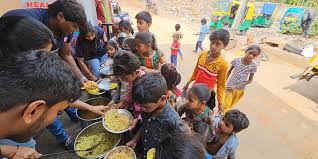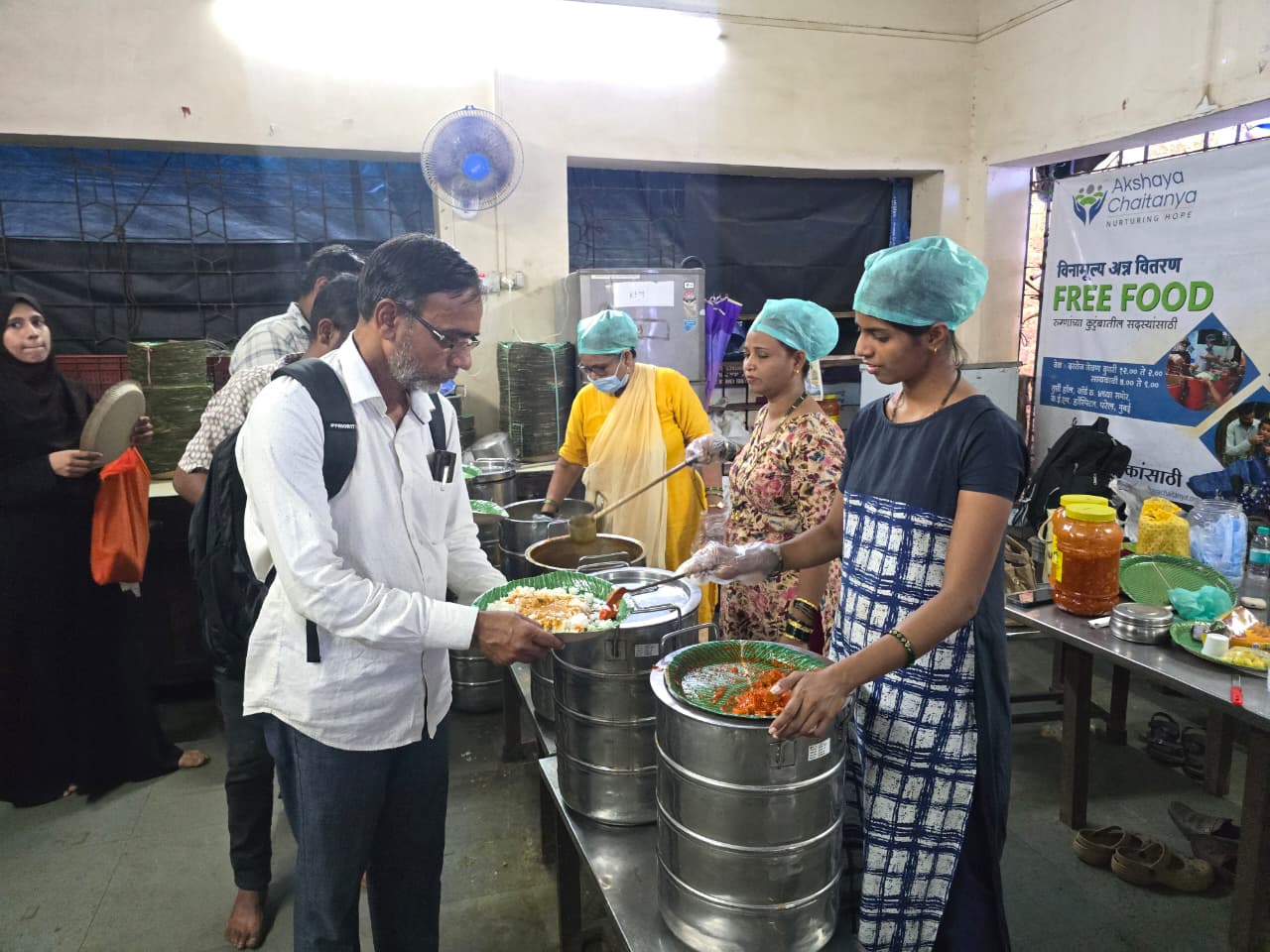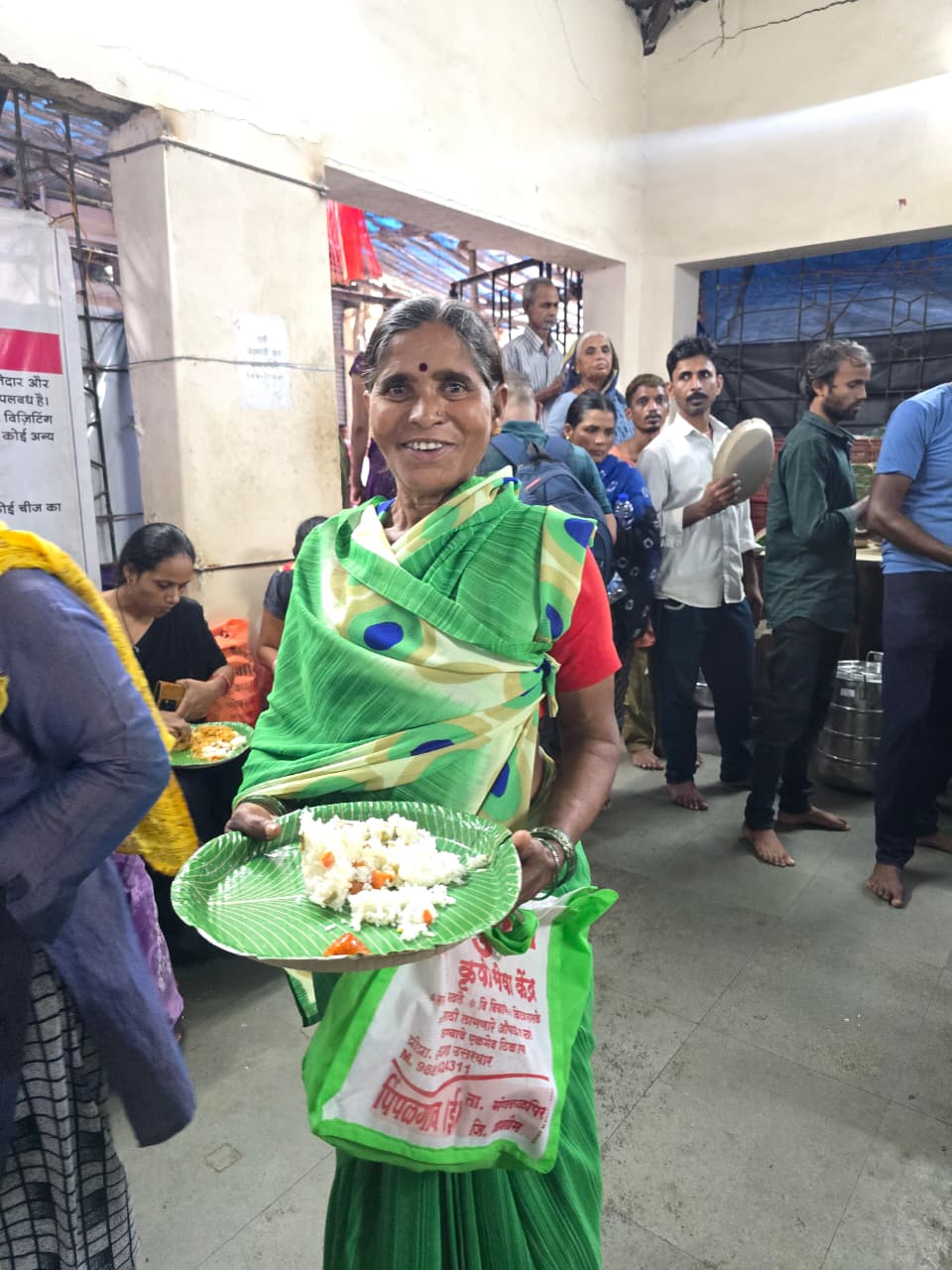What Is Pitru Paksha? Meaning, Rituals, and Significance of Shradh(2025)
POSTED ON May 31, 2025 BY AKSHAYACHAITANYA
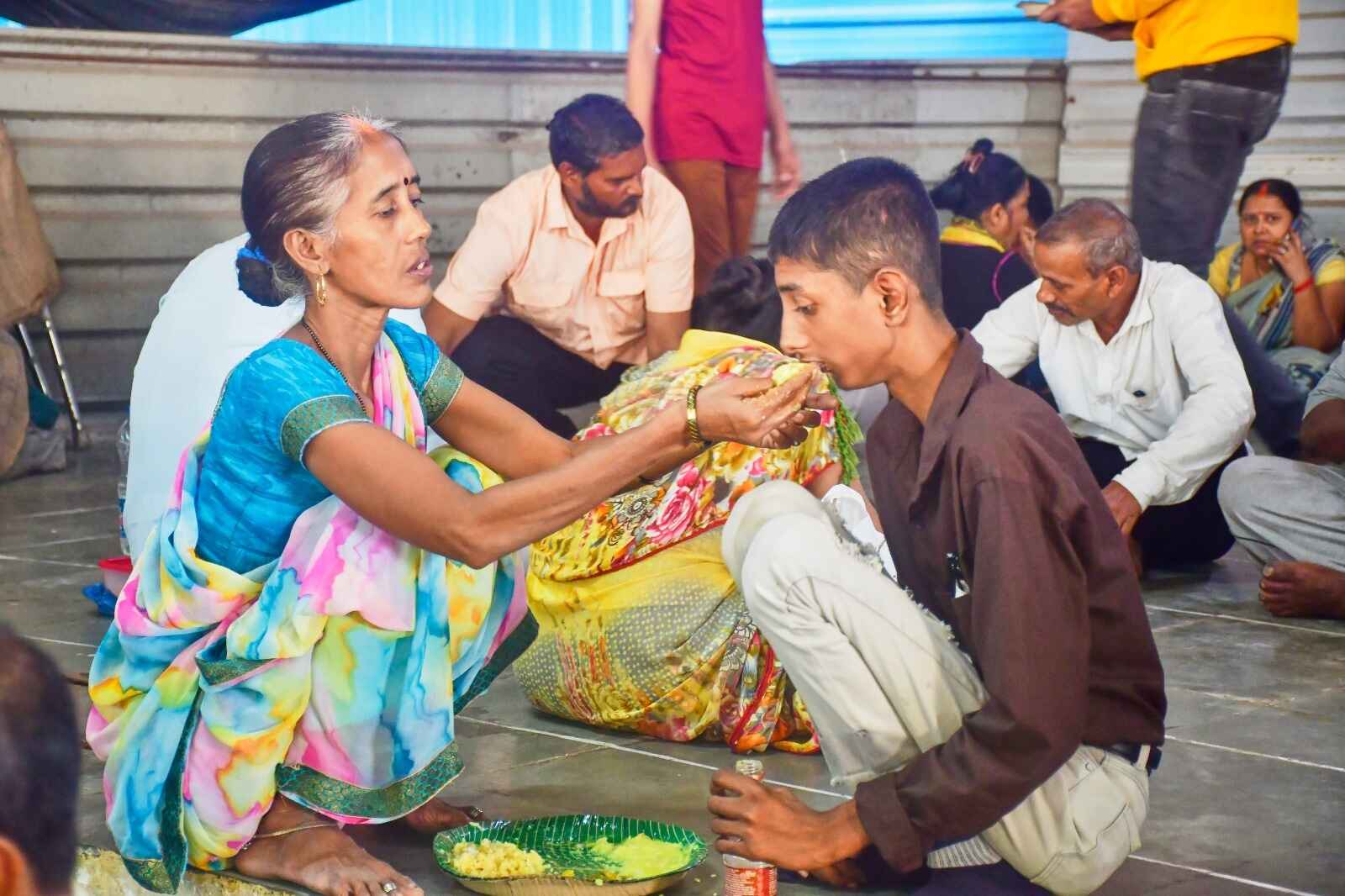
Have you ever lit a diya in memory of a loved one and felt their quiet presence surrounding you? That flicker of flame, that gentle stillness – it’s more than nostalgia. In Indian culture, remembering our ancestors isn’t just a tradition – it’s a sacred expression of love, gratitude, and spiritual connection. And there is no time more powerful for this remembrance than Pitru
Paksha, a deeply revered 16-day observance devoted to honouring those who came before us.
Observed with solemn devotion across India, Pitru Paksha isn’t just about rituals – it’s a soulful homecoming. Families gather not only to perform Shraddha but also to celebrate the invisible threads that connect generations. It’s a time when prayers turn into blessings and offerings become acts of love.
Today, these offerings can go beyond sacred altars. They can become meals served to the hungry, hope given to the forgotten, and kindness passed on in the name of our forefathers. At Akshaya Chaitanya, we carry forward this timeless legacy by feeding the underprivileged during Pitru Paksha – transforming reverence into real impact.
As you read on, discover the spiritual meaning, rituals, and timeless significance of Pitru Paksha – and how you can take part in this journey of remembrance and compassion.
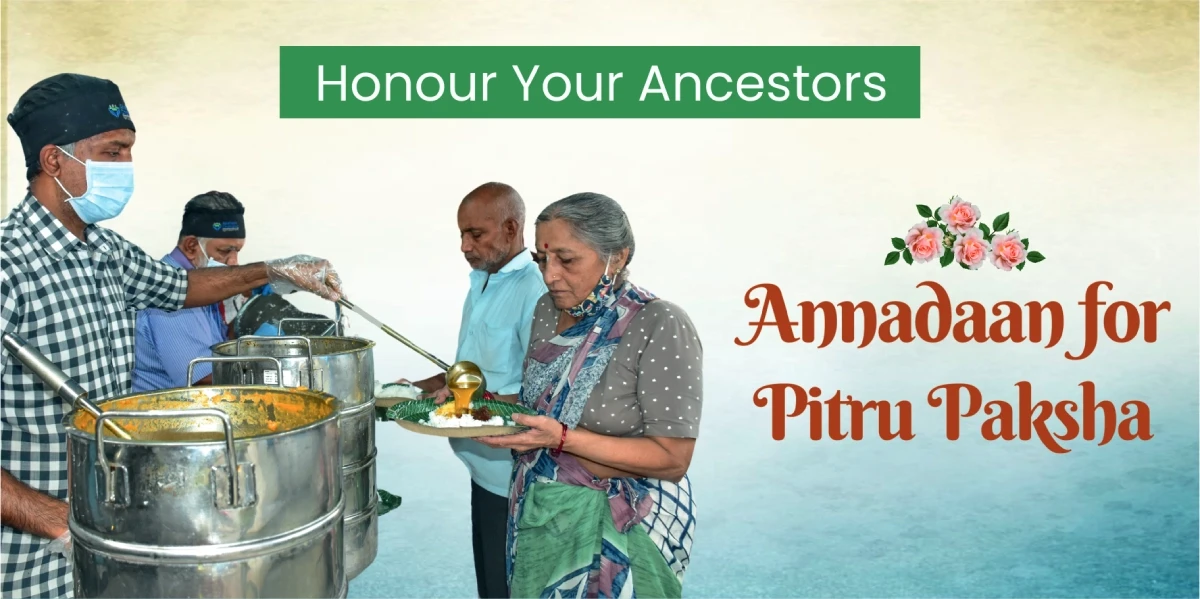
What Is Pitru Paksha?
Pitru Paksha (literally "fortnight of the ancestors") is a sacred 16-day period in the Hindu lunar calendar dedicated to remembering and honouring one's ancestors. Falling between September and October (in the months of Bhadrapada or Ashwin), it starts on the full moon day (Purnima) and ends on Mahalaya Amavasya – the new moon.
According to Hindu belief, during this time, the souls of ancestors descend to Earth to receive offerings from their descendants. These acts are not mere rituals – they are believed to bring peace to the departed and blessings to the living.
As written in the Garuda Purana and echoed in the Mahabharata, performing Shraddha during Pitru Paksha helps souls attain moksha (liberation) and eases their journey through the afterlife.
But beyond scriptures and customs, Pitru Paksha is about belonging – about remembering where we come from. Today, that remembrance can take new form – such as feeding the hungry in honour of our ancestors.
“The soul is eternal. It journeys across lifetimes. Pitru Paksha is our offering of love to guide them on their way.”
5 Key Rituals Performed During Pitru Paksha
Passed down through generations, these sacred rituals are symbolic expressions of devotion, gratitude, and responsibility toward our ancestors:
- Shraddha
This is the core ritual, where families offer cooked food – often including kheer, puri, lentils, and vegetables – to Brahmins and crows (regarded as messengers of ancestors). Shraddha is typically performed on the tithi (lunar day) that matches the ancestor’s date of death.
- Tarpan
Tarpan involves offering water mixed with sesame seeds, barley, and kusha grass while chanting mantras. Done by riverbanks or sacred water bodies, this act quenches the thirst of the departed souls.
- Pind Daan
In this ritual, rice and barley balls (pindas) are offered to symbolize the physical body. Pind Daan is believed to liberate ancestors from worldly attachments and help their soul rest in peace.
- Daan (Donation)
Donating, especially food (Anna Daan), is considered a powerful spiritual act. Giving in memory of ancestors blesses their souls and sows goodness in the present world.
- Feeding the Needy
In modern times, families often partner with trusted NGOs like Akshaya Chaitanya to provide nourishing meals to the underprivileged – keeping the essence of Shraddha alive in contemporary, compassionate ways.
“Daan offered with devotion during Pitru Paksha nourishes not just the body, but the soul – of both giver and receiver.”
Spiritual Significance of Pitru Paksha(Shradh)
Pitru Paksha holds profound spiritual importance, rooted in the idea of rin (debt). According to Hindu philosophy, every human is born with three debts:
- Dev Rin – to the gods
- Rishi Rin – to the sages
- Pitru Rin – to the ancestors
Pitru Paksha is the time to repay that sacred debt to our forebears.
3 Reasons Pitru Paksha Is Spiritually Transformative
Gateway for Ancestral Blessings
During Pitru Paksha, the veil between the physical and spiritual realms is believed to thin – making it easier for ancestral blessings to reach their descendants.- Path to Moksha
Rituals like Shraddha and acts of daan (charity) help guide the souls of ancestors toward liberation from the cycle of rebirth.
- Karmic Cleansing
Selfless acts such as food donation help cleanse ancestral and personal karma, bringing peace to both giver and receiver.
At Akshaya Chaitanya, we believe that true homage is not just in ritual but in action – in feeding the hungry, sheltering the vulnerable, and serving humanity in the name of those we miss.
Why Food Donation (Anna Daan) Is the Highest Form of Daan
In Hinduism, Anna Daan – the donation of food – is considered the noblest and purest form of charity.
4 Reasons Anna Daan Holds Special Power During Pitru Paksha
- It Aligns with Traditional Rituals
Food has always been central to Pitru Paksha – from Shraddha offerings to community feasts. Donating food continues this sacred act beyond the puja room.
- It Is Endorsed by Scriptures
Ancient texts like the Garuda Purana and Manu Smriti describe the immense merit (punya) earned through food donation, especially during Pitru Paksha.
- It Reflects Pure Devotion
Giving food to those in need, without expectation, is an act of compassion that honours the spirit of our ancestors.
- It Makes Rituals Relevant
Feeding a hungry soul today echoes the very essence of ancestral offerings – nourishment, care, and love.
“Anna Daan is Mahadaan – the greatest of all donations.”
- Ancient Hindu Proverb
Every meal served by Akshaya Chaitanya during Pitru Paksha is more than sustenance – it is a prayer, a remembrance, and a deeply personal offering in honour of a life once lived.
How to Honour Your Ancestors with Akshaya Chaitanya?
Pitru Paksha is a sacred opportunity to channel love, memory, and blessings into real-world impact. With Akshaya Chaitanya, your heartfelt homage becomes a living legacy by donating on Pitru Paksha
4 Ways You Can Participate
- Donate Meals in Memory of a Loved One
Sponsor a day’s worth of meals for those in need, dedicated to your ancestor’s name.
- Support Community Kitchens and Drives
Fund mobile kitchens or community food distribution to reach the underserved during Pitru Paksha.
- Set Up Recurring Donations
Contribute daily throughout the 16 days of Pitru Paksha for continuous seva and blessings.
- Spread the Word
Involve friends and family in this meaningful act – amplify your offering through shared compassion.
Why Choose Akshaya Chaitanya?
- Purposeful Giving – Your donation directly supports meals for the hungry across Mumbai and other urban areas.
- Spiritually Rooted Impact – Every contribution is treated as a sacred offering, imbued with love and remembrance.
- Transparency and Accountability – As a trusted NGO, we ensure every rupee is used with care and honesty.
- Legacy in Action – Your donation becomes a story of values passed down – a living tribute that continues to nourish long after the ritual is over.
“When you feed someone in memory of your loved one, you pass on more than food – you pass on their spirit, their values, and their blessings.”
The Final Step in Honouring Your Ancestors
Pitru Paksha isn’t only a time to look back – it is also a chance to move forward, carrying with us the lessons, values, and virtues of those who shaped us. Through food donation, we honour their memory in the most profound and compassionate way possible.
Let this Pitru Paksha be a time of sacred reflection and selfless action. Join hands with a trusted NGO and transform your ancestral homage into healing for the world.
“To remember is divine. To serve is sacred.”
